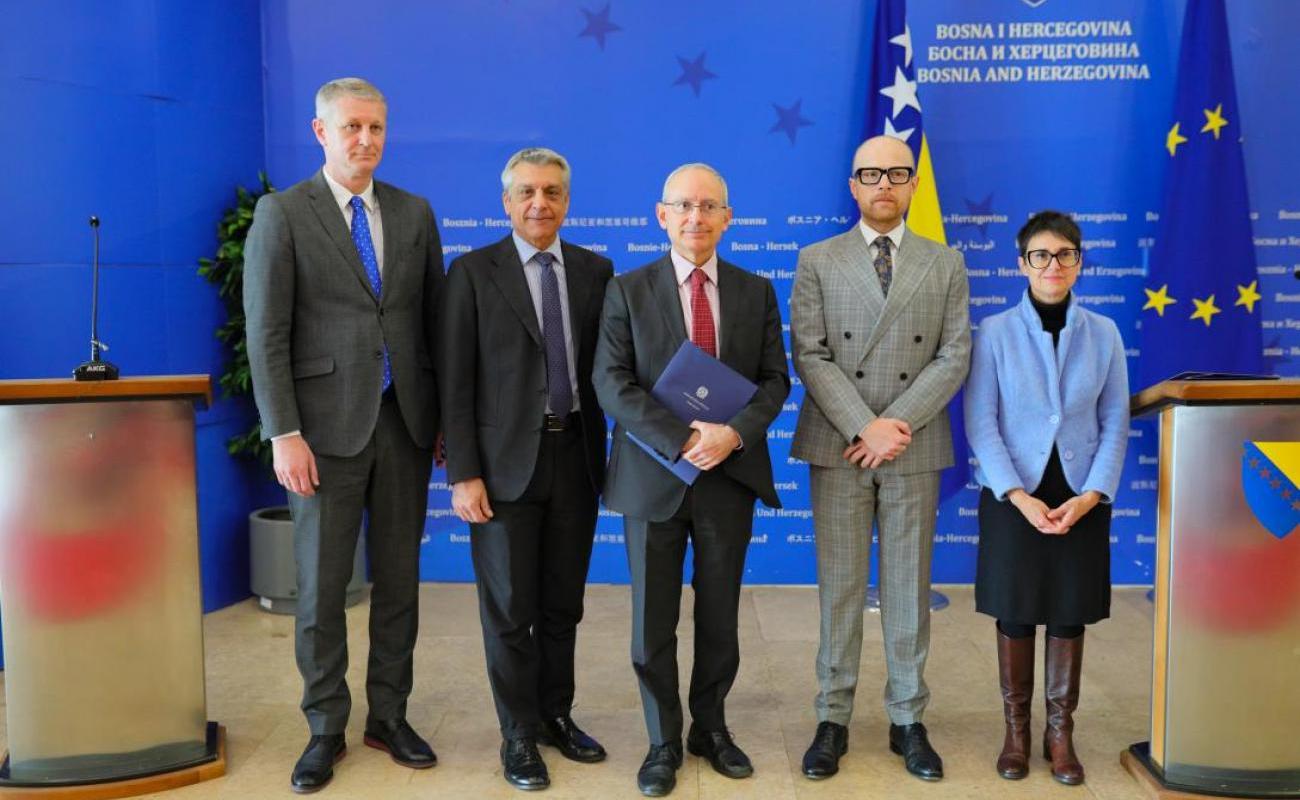EU helps BiH advance towards European standards in phytosanitary sector

The European Union is committed to strengthening Bosnia and Herzegovina's phytosanitary sector focusing on enhancing competitiveness and alignment with EU standards. The phytosanitary sector is vital for preserving agricultural potential, boosting local economies, and safeguarding human, animal, and environmental health. Through collaboration with EU experts and provision of necessary equipment, the EU aims to ensure efficient phytosanitary operations, enabling BiH to meet European standards and access the single market.
On 23 April in Sarajevo, an EU Twinning project worth 1.5 million euros held its closing conference to present the progress made in the alignment with the EU acquis in the phytosanitary sector in BiH. This project facilitated the exchange of expertise among Italian, Polish, and BiH experts, encouraging long-term cooperation. The project supported the gradual harmonization and building of institutional capacities of the phytosanitary sector in BiH over the last three and a half years.
The support provided by the European Union in advancing Bosnia and Herzegovina towards European standards in this sector is essential for ensuring the well-being and prosperity of its citizens. By adhering to European standards, Bosnia and Herzegovina can enhance its competitiveness in international markets, leading to increased trade opportunities and economic growth. Additionally, improved phytosanitary practices can improve the resilience of agricultural production systems, ensuring food security and livelihoods for farmers and rural communities.
“Over the last 15 years, the EU has supported Bosnia and Herzegovina's phytosanitary sector with nearly 5 million euros, enhancing infrastructure and expertise of institutions at all relevant levels. As we reflect on the achievements of this project, let us reaffirm our commitment to further support the country and upholding the highest standards of phytosanitary policy and regulation. By working together, we can continue to enhance sustainable health and agriculture but also further progress of BiH on its EU path,” said Antonella Di Sandri, Head of Operations Section for Economic Development, Natural Resources, Infrastructures of the EU Delegation in BiH.
The phytosanitary sector plays a crucial role in ensuring the safety and quality of food supply. By implementing rigorous inspection and control measures, it helps prevent the spread of harmful pests and diseases in agricultural products, thus reducing the risk of foodborne illnesses and protecting public health. In addition, as highlighted by speakers and experts during the conference, aligning legislation with the EU acquis is imperative to effectively execute phytosanitary policies.
“This twinning project engaged all relevant actors in the field of phytosanitary in Bosnia and Herzegovina, including phytosanitary inspections, administrative staff, phytosanitary laboratories and agricultural producers. The primary objective is the establishment and advancement of the phytosanitary sector in Bosnia and Herzegovina and aligning it with EU legislation and standards. Great gratitude goes to the partner countries that sent their experts and from whom we learned a lot, as well as to the European Union, which helped to establish a functional system in the phytosanitary field across all levels of government in BiH," said Predrag Jović, director of the BiH Administration for health protection of plants.
The European Union is a strong and trusted partner in giving support to the phytosanitary sector in Bosnia and Herzegovina, by providing financial support, as well as knowledge and best practices of European experts. In addition to the professional training of all relevant actors in the phytosanitary field, the European Union also provided 25 off-road vehicles, as well as 180 computers and other IT equipment to strengthen phytosanitary inspections in BiH. This support enhanced the efficacy and productivity of phytosanitary inspection services across Bosnia and Herzegovina.
The Twinning project final conference was attended by representatives from two EU member states: the Ministry of Agriculture, Food Sovereignty and Forestry of Italy, the Ministry of Agriculture and Rural Development of Poland. H.E. Marco Di Ruzza, Ambassador of Italy to Bosnia and Herzegovina, Mr. Wojciech Skrobisz, Consul at the Embassy of Poland in Bosnia and Herzegovina, and numerous representatives of all sectoral competent institutions and services in Bosnia and Herzegovina also attended the Conference.
The leading beneficiary institution in this project is the Administration of Plant Health Protection of Bosnia and Herzegovina, in cooperation with the competent authorities of the two entities - the Federation of Bosnia and Herzegovina and Republika Srpska, and Brčko District of BiH.
